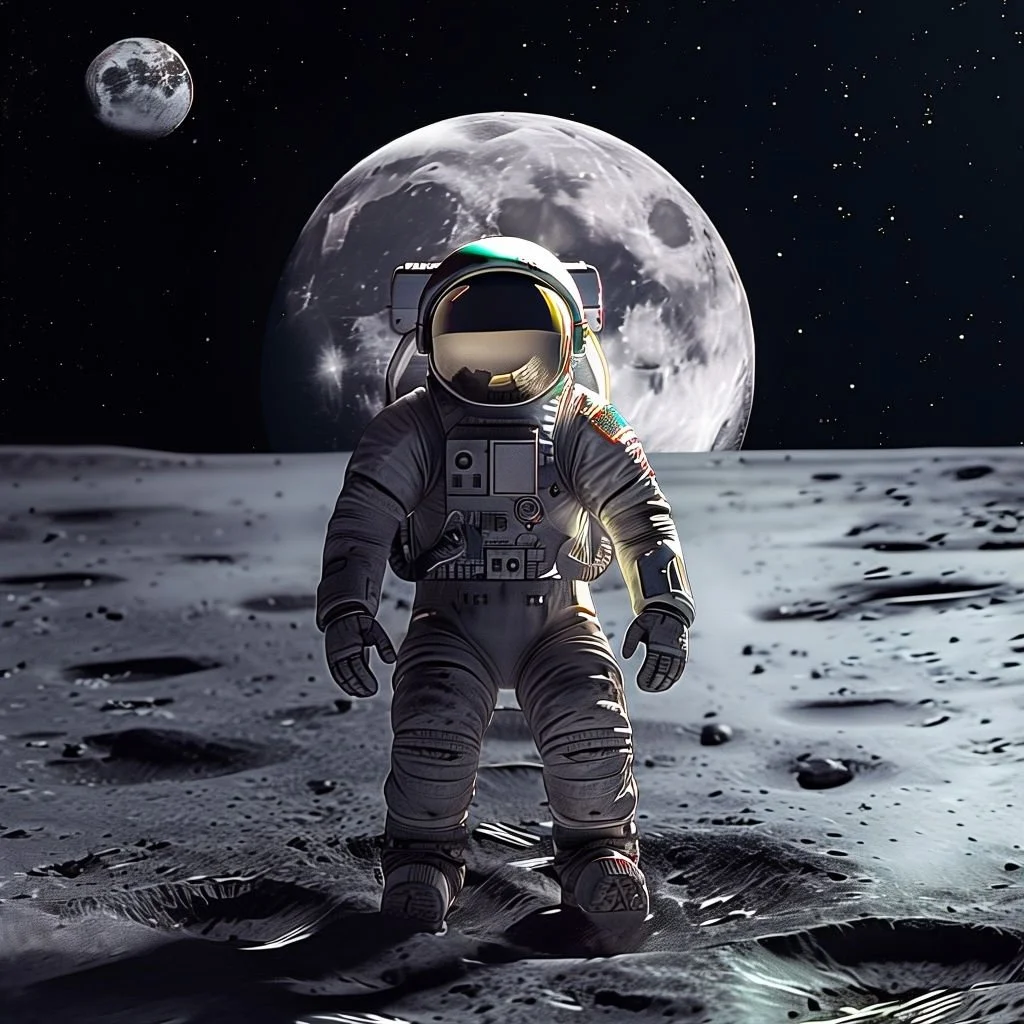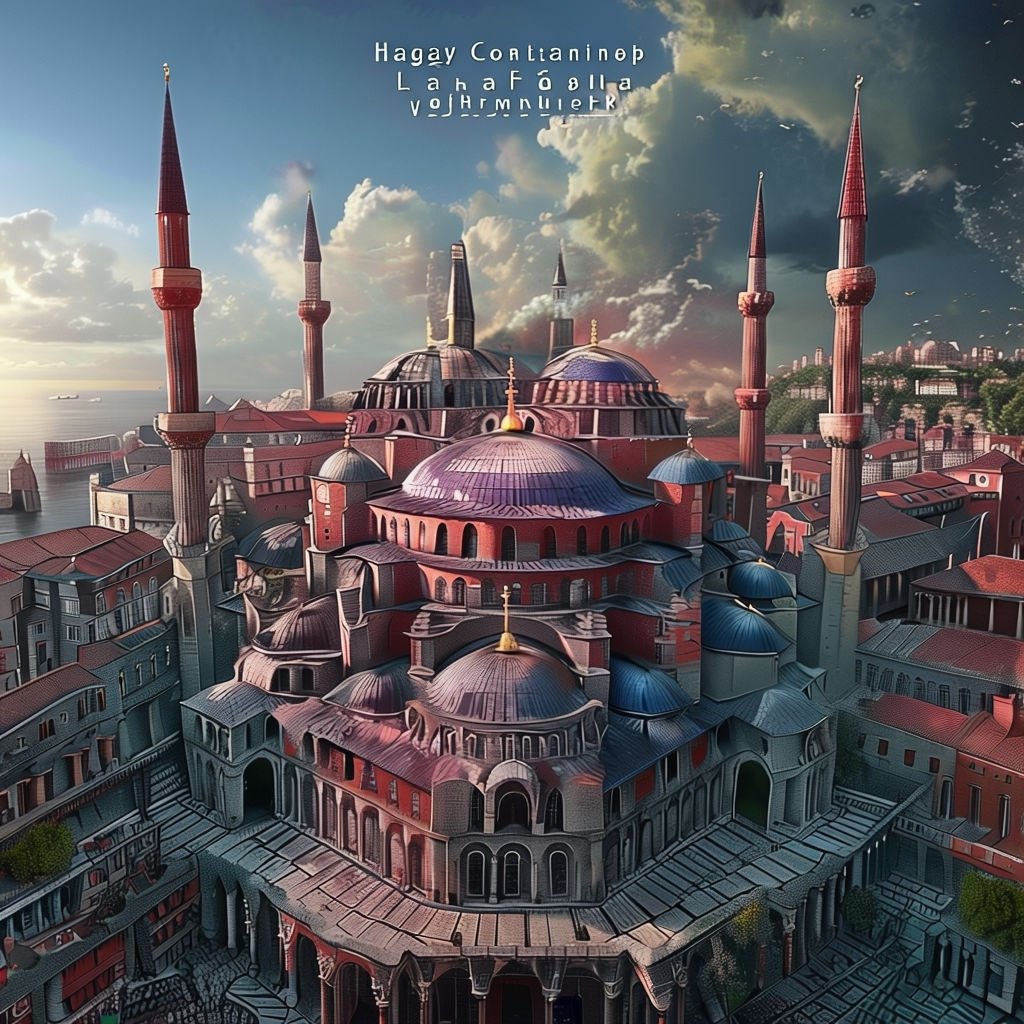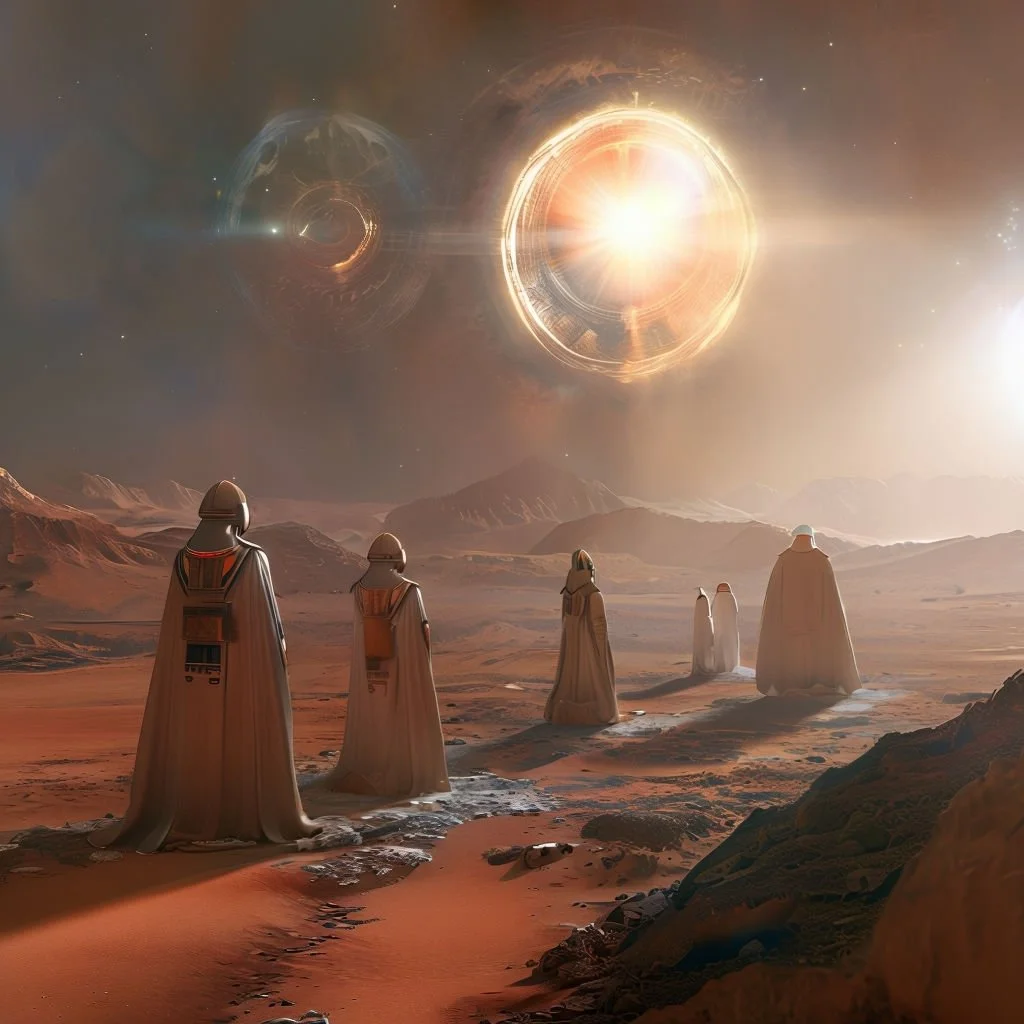The Lost Signal : Echoes of the Lost Cosmonaut
The hiss of static was the only sound in the control room. Beneath the dim glow of flickering monitors, Vera sat hunched over her console, eyes fixed on the signal—a faint blip that had appeared on the radar an hour ago, from the far side of the moon. She adjusted the frequency, fine-tuning the receiver. The signal was weak, barely cutting through the interference of cosmic radiation, but it was there. And it was impossible.
There hadn’t been a manned mission to the moon in over 30 years.
Vera ran her fingers through her cropped hair, her thoughts racing. Officially, the Soviet lunar missions had ended in the 1960s. The American Apollo program had taken the glory, and the Soviets had turned their attention to low-Earth orbit. But there were always rumors—whispers of lost cosmonauts, secret missions, and failures the state would never acknowledge. Ghosts in space, drifting forever in the void.
A soft crackle broke the static, followed by a voice. Faint, distorted, but unmistakably human.
"... космонавт… слышите… меня? This is... Vostok... Do you copy?"
Vera’s heart skipped. Vostok. That name hadn’t been spoken in decades. She leaned in closer, fingers trembling as she pressed the microphone to her lips.
"This is Ground Control," she said slowly, her voice tight with disbelief. "Who am I speaking to?"
More static, then a garbled response. "...lost...need...help…"
She slammed her fist on the console. The signal was fragmenting. Vera quickly adjusted the dials, pushing the equipment to its limits. She had to know more.
"Please, repeat your name. Who are you?"
A pause, then the voice came through clearer, though strained, as if coming from far away, as if from a place forgotten.
"Cosmonaut Yuri...Krylov...Vostok mission. I’m...still here. Please...help."
Yuri Krylov. The name sparked a memory deep in Vera’s mind—one of the old rumors she’d heard as a child. There had been talk of a mission that never returned. A cosmonaut lost to the stars, erased from official records, his fate hidden in the classified archives of the space program. No one had ever confirmed his existence. He was a ghost, a myth.
"Yuri," Vera whispered, her throat tight. "How…? Where are you?"
"Orbiting...the moon," the voice replied, more stable now. "They sent me...to go further than anyone. I made it...but something...went wrong. They left me here. I’ve been...alone for so long. You have to bring me back."
Vera felt a chill crawl up her spine. Orbiting the moon? It was impossible. If he had been sent decades ago, he should be dead. No spacecraft could sustain life for that long. Unless…
She looked at the old readouts, eyes scanning the radiation levels around the moon. What if something—some accident, or malfunction—had preserved him? Frozen him in the cold vacuum, leaving him alive in some half-existence? Trapped in a forgotten orbit, waiting for rescue that never came.
"They never told us," Vera whispered, more to herself than to him. "They buried your mission."
A crackle of static, then Yuri’s voice came through, tired, defeated. "I know. I’ve heard...the silence."
Vera’s mind raced. If this signal was real, if Yuri Krylov was somehow still alive, this was the discovery of the century. But it was also a secret—one that had been buried for a reason. She knew the government would never let the truth come out. If they found out she had contacted him, they would bury her too, along with all the evidence.
But could she just leave him there? Alone, forgotten, a relic of a Cold War era that had consumed its heroes and discarded them?
She glanced at the clock. The window to reach him was closing; the moon’s orbit would soon pull him out of communication range. If she didn’t act now, the signal would be lost again—perhaps forever.
Vera made her decision.
"Yuri, listen to me," she said, her voice steady. "I don’t know if I can bring you back. But I’ll try to reach you. I’ll find a way."
There was silence on the other end, and for a moment, she feared she had lost him. But then, faintly, she heard him again.
"Thank you... You’re the first voice I’ve heard in so long."
The signal wavered, growing weaker. She didn’t have much time.
"I’ll come back," she promised. "Stay with me, Yuri."
But the static returned, louder now, drowning his voice. The blip on the radar faded, the faint pulse of life slipping away into the cold expanse of space.
And then, there was nothing.
Vera sat in the quiet control room, her heart pounding in her chest. She had no proof—no evidence that Yuri Krylov, the lost cosmonaut, had ever made contact. But she knew, deep down, that he was still out there, drifting in the silence of the stars. A relic of a forgotten era, waiting for a rescue that might never come.
And in that moment, Vera realized the true horror of the Space Race—the price of ambition. It wasn’t just about who reached the stars first. It was about who was left behind.
—
The Artemis III crew had made history. For the first time since Apollo 17, humans had returned to the lunar surface. The world watched in awe as NASA astronauts stepped onto the Moon again, the iconic image of boots pressing into lunar dust broadcasted across every corner of the globe. But what the world didn't see—what only those inside Mission Control and aboard the Artemis lander knew—was the secret they had uncovered.
Commander Janelle Brooks had been on the surface for only a few hours when she found him. It wasn’t part of the planned exploration zone, but something had drawn her further east, toward a series of craters marked on their maps as unexplored. There, nestled in the shadow of an ancient lunar ridge, she saw it.
At first, it looked like nothing more than debris—a piece of old spacecraft, left over from an earlier mission, perhaps from one of the many failed lunar probes. But as she approached, the details became clear. The faded red star. The unmistakable design of a Soviet space suit, half-buried in lunar dust.
She froze.
"Mission Control, I think I’ve found something… unusual," Brooks said, her voice tight with shock.
Inside NASA’s Houston headquarters, the room went silent. For several long moments, no one spoke. Then the voice of the Flight Director crackled through her helmet.
"Commander Brooks, what do you see?"
She described the scene in precise detail. A Soviet cosmonaut. Long dead, the suit still intact, lying face down in the dust. The fabric of the suit was brittle, weathered by decades of exposure to the harsh lunar environment, but the emblem on the chest—CCCP—was still visible.
The room erupted into chaos. Engineers and mission specialists scrambled for answers. How was this possible? No Soviet cosmonaut had ever been officially sent to the moon. The Soviet Union’s lunar program had ended in failure. No one—no one—should be here.
"Mission Control, we’ve got a body," Brooks added quietly. "Looks like he’s been here for a long time."
The command center fell silent again. Everyone knew what this meant. The rumors had been true all along. The lost cosmonaut, Yuri Krylov, was real. He hadn’t been stranded in space—he had made it to the Moon. And he had been forgotten.
Back on Earth, NASA's top brass gathered in a secure conference room, far from the press and public who were celebrating the Artemis landing. A grainy image of the cosmonaut’s body on the lunar surface was displayed on the screen before them, casting a long shadow over what was supposed to be their triumph.
"The world is watching," Administrator Nathan Cole said, his voice low. "We have to decide how to handle this."
"Do we even know what happened to him?" one of the engineers asked. "Was this a Soviet mission? A secret one?"
"It must have been," Cole replied, rubbing his temples. "There were always rumors during the Cold War—whispers about failed Soviet attempts to reach the Moon. But they denied everything. If Krylov made it, and they covered it up…"
The room grew tense. The discovery of a lost Soviet cosmonaut on the Moon would have global repercussions. It would unravel decades of Cold War secrecy, raise questions about the nature of space exploration, and cast both the U.S. and Soviet space programs in a new light. But more than that, it would reignite old tensions. There were still people alive who had lived through the rivalry of the Space Race, and this revelation would undoubtedly cause a political firestorm.
"What do we tell the public?" Cole asked, leaning forward in his chair. "We’re sitting on a Cold War secret that no one knew existed. Do we reveal the truth?"
Silence fell over the room. Everyone knew the implications of what they were discussing. A discovery like this could cause a massive diplomatic incident with Russia, who had long since abandoned the Soviet Union’s legacy but remained fiercely protective of its achievements. And there was the American public to consider—how would they react, knowing that NASA’s own moon landings had been paralleled by secret Soviet failures?
Finally, Dr. Lydia Marlow, the mission’s chief scientist, spoke up. "If we reveal this, it won’t just be about the Cold War. It will change how we think about space exploration—about what was hidden, what was lost. People deserve to know the truth."
But Cole shook his head. "I understand that, but this isn’t just about science or history. It’s about politics. The Cold War is over, but there are still scars. If we reveal Krylov now, it could strain relations with Russia, stir up old grievances. And who knows what else was buried along with this."
"What do you suggest?" Marlow asked, her voice sharp. "We leave him there? Pretend we didn’t find him?"
"No," Cole said slowly. "But maybe we don’t need to make this public yet. We can analyze the situation, work with the Russians quietly, and see if there’s a way to release the information without causing chaos."
The room buzzed with quiet murmurs. Some agreed, others felt uncomfortable with the idea of suppressing the truth. But everyone knew that this decision would be one of the most controversial in NASA’s history.
Finally, Cole stood. "We’ve got a limited window before this gets out. For now, this stays classified. We’ll secure the body, bring it back to Earth, and study it. We’ll consult with the Russians privately and figure out how to handle it. But until then, no one breathes a word of this to the media. We’re not ready for what this will unleash."
The next few days were a blur of covert operations. The Artemis crew, under strict orders, quietly retrieved Yuri Krylov’s body, placing it in a secure storage unit for transport back to Earth. Publicly, they reported a successful mission, detailing the surface samples, lunar rocks, and environmental data collected. There was no mention of the cosmonaut. No mention of the skeleton wrapped in a Soviet space suit.
Back on Earth, Krylov’s remains were placed in a classified NASA facility, where a small team of scientists began their analysis. His suit was worn but intact, the Soviet insignia still visible. Inside the suit, radiation readings confirmed that he had been exposed to dangerous levels of cosmic radiation during his time on the moon, but the exact cause of his death remained unknown. Perhaps it was the failure of his life support system. Perhaps it was the cold silence of space itself.
Behind closed doors, NASA officials began their negotiations with the Russian government, carefully treading the delicate line between history and diplomacy. Moscow’s response was unsurprising—they had long buried their failed missions, and they had no desire for this particular ghost to rise again.
For now, the world remained blissfully unaware. The official story was one of triumph, of humanity returning to the Moon for the first time in over half a century. But deep within NASA’s archives, hidden from public view, was the truth: a forgotten cosmonaut, a lost chapter of the Space Race, and the chilling reminder that space exploration had its own buried secrets.
As Vera sat in her small apartment, watching the news coverage of Artemis III's success, she couldn’t shake the feeling that something was missing from the story. The signal she had heard all those years ago—the voice of Yuri Krylov—still haunted her.
She knew the truth would come out one day. Perhaps not today, perhaps not tomorrow, but one day. The lost cosmonaut's story was far from over.




